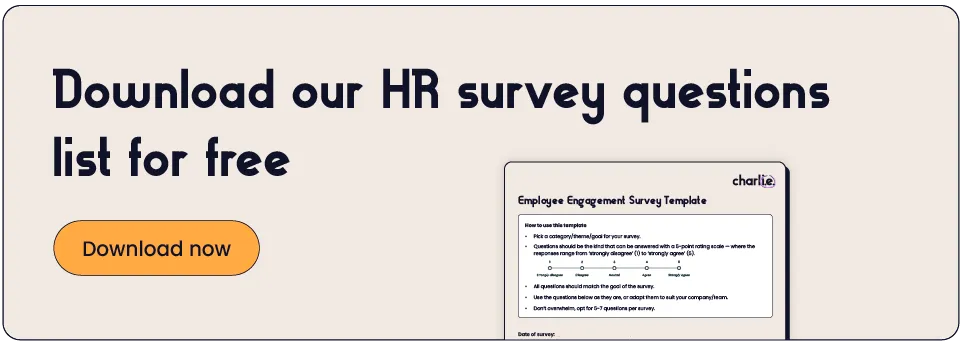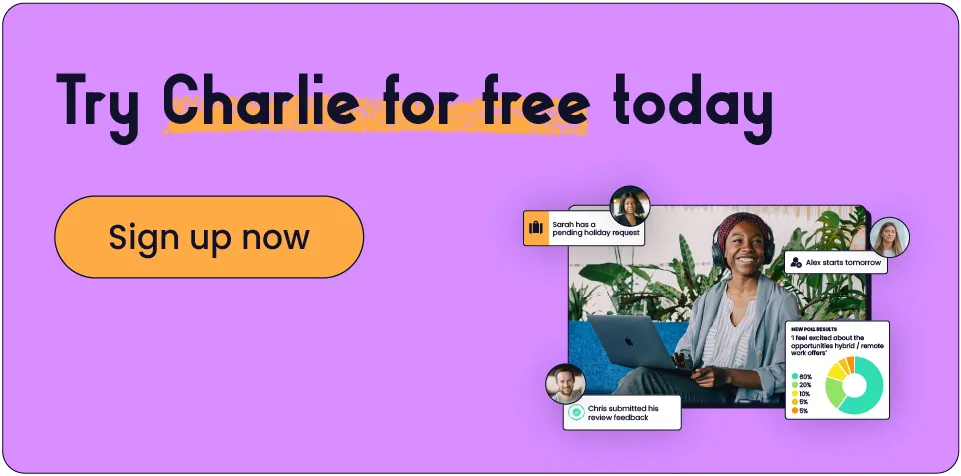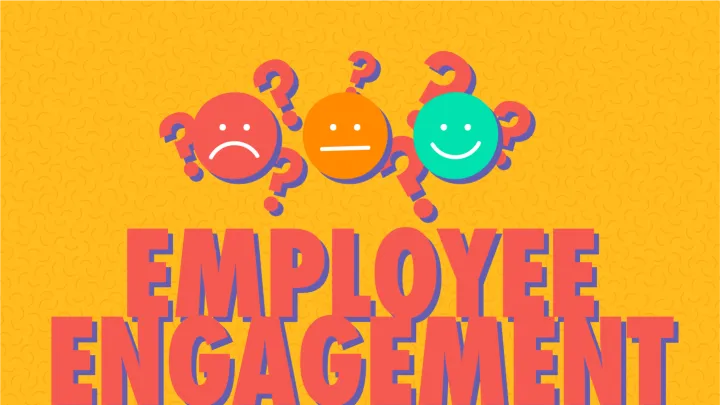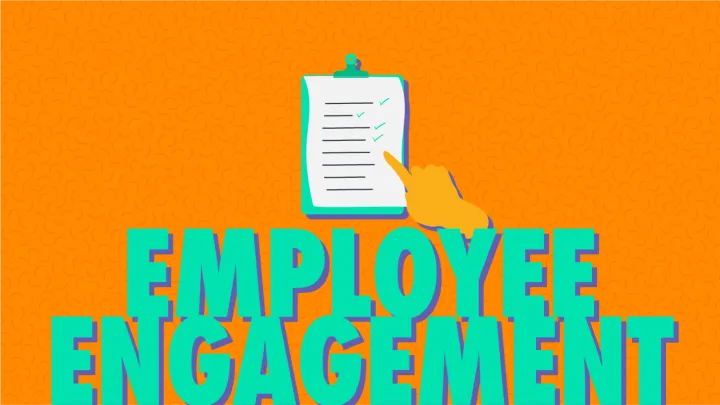30 employee engagement survey questions you need

Understanding your team’s concerns and gathering employee feedback is a must. It’s all well and good to say to have a positive workplace culture, but it’s another matter to have systems and processes that foster this kind of environment.
So this is where surveys come into place – along with crafting the right type of employee engagement survey questions to go with them.
By having the right wording and the right type of questions, you give team members the time and space to be heard — with an overall positive impact on employee retention.
In this article, I will cover the different types of employee engagement survey questions to measure various aspects of your business - motivation, teamwork, leadership and management, etc. - analyse the benefits they offer, and share with you how we run engagement surveys and what kind of engagement questions we ask at a company like Charlie.
What are employee engagement questions?
Engagement survey questions measure your employees' commitment through different types of survey questions. Your employees can:
- rate their agreement with statements on a scale of 1-5, with 1 being “strongly disagree,” and 5 “strongly agree.”
- rank different statements (for example position 1 to position 5) on the order of importance
- answer yes or no to a statement or a question
- get multiple-choice answers for one question
- answer open-ended questions where people can just write a tailored answer to their questions
This is, of course, just a sample of the kind of employee engagement survey questions you can have and there's plenty more you can create on your own.
4 essential tips for great employee engagement survey questions
1.Think about the goals behind the questions
I've been running and writing employee engagement survey questions since the beginning of Charlie – or at least when we decided to run engagement surveys, and it's been a while now.
As Chief of Staff, engagement is a metric I have to keep an eye on to retain and keep our team members engaged – but when I first had to come up with questions, I realised I had no clue where to start.
So when we ran our first engagement survey to get people's honest opinions on our unlimited holiday policy (our first ever company-wide survey), I sat down and asked myself the following things:
- What information do we need?
- How many questions should we ask?
- What data points are crucial?
- How can I get these answers from our team members?
Once these questions were answered, all I needed to do was write the questions and send the survey! The results led us to completely scrape our unlimited holiday policy, as we found out our team members did not actually like it. Even worse, the policy caused them stress and kept them from taking enough holidays during the year.
Without the right engagement questions, we would have never uncovered any of these. It was a turning point for us – it would take a bit of time to run our surveys, but we would do it right.
2.Stay clear and concise
Like any type of content, engagement survey questions have to be clear and concise. This is crucial so team members can give precise answers to your questions.
You want them to give you their opinion on a particular topic, and you want it to be focused on a specific area, so perhaps a good idea is to ask a few people to read through the questions and ask them what they understand so you know your questions clear, and not up to interpretation.
3.Encourage honest feedback
Many people feel nervous about giving honest opinions for fear of repercussion – that's why you should make engagement survey questions' responses anonymous.
This will give your team members the space to be truthful – but feedback goes beyond engagement surveys. You should make it a natural, but uncomfortable part of any journey at your business by normalising it every step of the way.
4.Run engagement surveys often
Frequency can be a tricky one. At Charlie, it took me a while to understand how often we should run surveys. Of course, a yearly one can be useful, but how do you get a satisfying completion rate when people are not used to them?
That's when running pulse surveys throughout the year can help – this can be useful for motivation, for example, and will get everyone into the habit of answering the surveys sitting in their inbox.
At Charlie, we run a monthly survey to measure engagement with two statements and a rating scale from 1 to 10:
- I feel motivated and engaged at work
- I am able to utilise my time effectively at Charlie
This is also a useful way to see when engagement peaks and drops within our organisation, allowing us to take action if needed.
Engagement survey questions - concrete examples
To help you come up with your own engagement survey questions, I'll share below the ones we have used at Charlie in the past for different areas of the business – I'll also tell you why we think each topic has its own importance and why running a survey on it could help.
Employee wellbeing and satisfaction survey questions
Why it matters? "Happy" employees are more likely to be high-performing, so you should always check whether your team members are satisfied with the work they're doing and the people they're collaborating with.
- On a scale from 1 to 10, how would you rate your overall well-being at the company?
- Do you feel like your work-life balance is satisfying?
- Do you feel like you have a manageable workload?
- If you don't have a manageable workload, what would you consider to change it?
Mental Health and Burnout
Why it matters? Poor mental health and employee burnout can lead to high absence rates, impacting your productivity levels and the wellbeing of your team, so you should always keep a finger on the pulse to prevent it from happening.
- How often do you feel stressed at work?
- Do you feel you can share how you feel and what's going on with life or work with your manager?
- Do you have adequate support for your mental health and to manage your stress levels?
- Do you use any of our mental health support and platforms?
- How would you rate the company's efforts in promoting a healthy work-life balance?
Career and Job Satisfaction
Why it matters? Recruitment processes can be long and difficult. What you want are team members that are in for the long run. That goes without saying that caring about their job satisfaction and career aspirations will be crucial to this retaining strategy.
- On a scale of 1 to 5, how satisfied are you with your current role?
- Do you feel your skills and talents are used to their full potential in your current position?
- How satisfied are you with the career development given by the business?
- Do you believe your salary and benefits are adequate to your role?
- Do you think our performance review cycles are effective and does the process seem fair?
Communication and Transparency from Leadership
Why it matters? Employees with no sense of purpose and no strong leadership to lead them will soon be demotivated. It's important to share as much information as possible so your team members trust your business and want to contribute to your goals. Secrecy will lead you nowhere.
- To what extent do you feel informed about the company's overall vision?
- Do you feel like the company is transparent enough about its performance and the reason behind key decisions?
- Do you feel comfortable providing feedback to the company's leadership?
Manager feedback
Why it matters? Leadership also means line management – do you know how your managers perform and how strong their leadership skills are? It will be useful to get an understanding and perhaps get everyone on a training course if results are poor.
- Does your manager provide enough guidelines and advice for your tasks?
- Does your manager allow you to be autonomous and trust your expertise?
- To what extent do you believe your supervisor considers diverse perspectives when making decisions?
- Is underperformance a problem your manager addresses within the team?
Learning and Development
Why it matters? For small businesses and startups, getting team members in and allowing them to hone in on their skills is essential – it will make your business a hub for learning and retaining team members.
- Is your manager involved in the development of your professional goals?
- Do you receive enough constructive feedback and recognition for your contributions?
- Is your manager proactive in identifying and addressing the professional development needs of the team?
- Does your manager foster a positive and inclusive work environment?
- Are conflicts handled correctly by your manager?
HR policies survey questions
Why it matters? HR policies are the pillars on which your business stands. If no one at your business follows the rules or cares about them, it will soon be chaos. It's also essential that you keep consulting your team and iterate on them so they don't outgrow your business.
- Do you feel informed about what HR policies are in place at your business?
- On a scale of 1 to 5, how satisfied are you with the clarity and accessibility of HR policies?
- Do you feel HR policies are standardised across the business and that people abide by them?
- On a scale of 1 to 5, do you feel like our HR policies create a fair and equitable place to work in?
- Are there any specific HR policies that you find unclear or confusing?
Recruitment and Onboarding
Why it matters? Recruitment and onboarding are the first impressions a new hire gets from your business. Poor processes will lead to confusion and may mean that your new hire won't pass probation or leave if they don't feel there is enough structure to support them.
- How satisfied are you with the recruitment and onboarding process?
- Do you believe that the recruitment process effectively identifies candidates who align with the company's values?
- On a scale of 1 to 5, how integrated did you feel after one month at the company?
- Are there any improvements we could put into place when it comes to training and onboarding new hires?
Performance Management
Why it matters? Every team member wants to be rewarded for the work they do. Having performance management processes that are fair, equitable and regular will ensure you retain team members and reward high-performing team members for hard work.
- Do you feel the performance management system effectively recognises and rewards high-performing employees?
- Are there any improvements that could be made within the performance management process?
- How would you rate the effectiveness of HR in addressing underperformance issues?
DE&I survey questions
Why it matters? Ensuring you have an effective DE&I strategy in place, along with actions to improve it will give you a broad range of perspectives and make sure all voices are heard within your business.
- How effective do you think the company's strategy to promote diversity and inclusion is?
- Are you aware of initiatives or programs that promote diversity and inclusion within the workplace?
- Do you believe that our HR policies effectively address and prevent discrimination and bias?
- Do you feel like there are any particular areas where the company could improve and if so, how?
Employee Relations and Conflict Resolution:
Why it matters? Having a business also means having to deal with disagreements and conflicts – but how does your team feel about the way you're handling it? Finding out will help you make adjustments where needed and handle conflicts to avoid any legal implications in the future.
- Do you feel like HR is effective at handling employee relations and conflicts?
- If you were reporting concerns or issues, would you feel comfortable sharing with HR without fear of consequences?
- Are there specific areas where you would like to see improvements in HR's handling of employee relations?
- How likely are you to seek HR's assistance in resolving workplace issues?
Employee engagement survey questions – what's next?
Some well-thought-out top-level strategic decisions from the beginning stages will help ensure your questions are helpful and provide data and information you can act upon – but what happens next?
It’s also worth noting that organising an HR survey manually is extremely time and labour-intensive and requires you to allocate resources and operational man-hours for distributing the surveys, collecting the responses, and analysing the data.
For this aspect, CharlieHR’s Engagement Surveys feature is highly useful for automating the whole process - from collecting the answers anonymously to aggregating the survey results. Not only does it make implementing the responses easier, but it also leads to a higher response rate and higher-quality survey responses through automatic reminders.
When you leverage automation technology and use a structured approach, you can execute HR surveys that are helpful, useful, and smart, and give you actionable insights to help build a better company.
Using an employee engagement software and pulse survey tool like Charlie helps you streamline the entire survey process, from creating the questions to analysing the results.
Experience the benefits of an improved HR survey process today by starting a free trial of CharlieHR, and be a force for positive change for your company and your team.
As a bonus, check out our employee engagement survey template to find out more.




